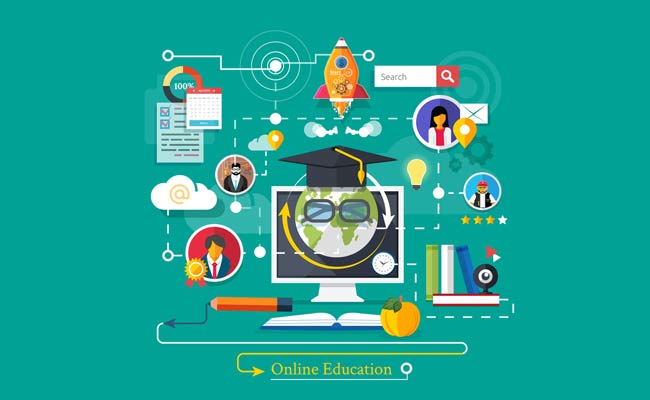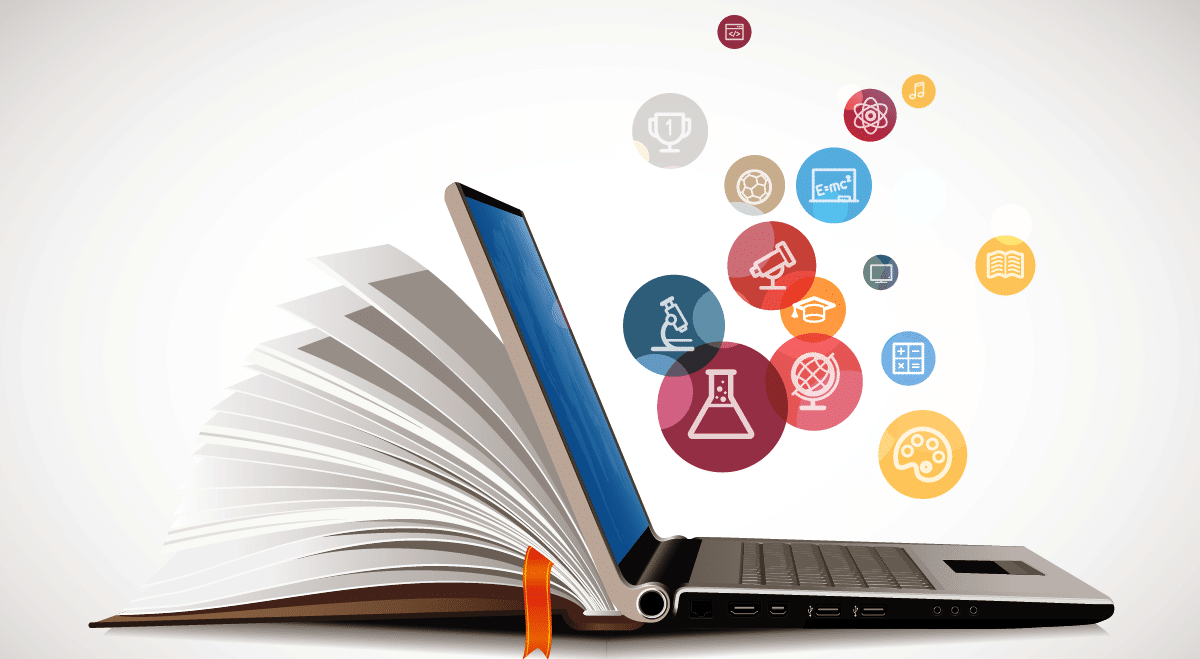Discover Creative Ways to Make Money and Increase Your Financial Freedom
Wiki Article
Innovative Strategies for Enhancing Modern Technology Education and learning in Today's Discovering Environments
The evolving landscape of technology education requires a reevaluation of typical instructional strategies to much better equip students for the intricacies of the contemporary globe. Ingenious strategies, such as hands-on knowing experiences and collective project-based initiatives, play an essential role in bridging academic principles with practical applications. Additionally, the assimilation of on-line resources and gamification can improve involvement and inspiration among learners. As we check out these techniques, it comes to be important to consider how tailored discovering can even more enhance the instructional experience and foster a much deeper connection between trainees and innovation. What might this imply for the future of education?Hands-On Learning Experiences
Hands-on discovering experiences function as a cornerstone in modern technology education and learning, properly connecting the space between theoretical understanding and functional application. These experiential activities make it possible for trainees to engage directly with devices, software application, and innovation, promoting a deeper understanding of principles that are typically abstract in conventional class setups.
By including hands-on understanding, instructors can assist in an atmosphere where students can experiment, innovate, and troubleshoot. This technique not only grows technical abilities yet also boosts analytical capacities, as students are motivated to challenge real-world difficulties. Moreover, hands-on experiences usually cause raised student inspiration and interaction, as students see the prompt significance of their studies to useful circumstances.
Moreover, such experiences can take various kinds, consisting of laboratory experiments, simulations, and interactive jobs, every one of which cater to different discovering styles. The assimilation of hands-on discovering in innovation education also promotes retention of details, as students are more probable to keep in mind ideas they have proactively collaborated with rather than passively observed. Overall, hands-on experiences are essential in preparing students for the complexities of the modern technological landscape, furnishing them with the skills and self-confidence needed to succeed in their future jobs.
Collective Project-Based Knowing
Joint project-based discovering equips pupils to collaborate in groups to deal with facility, real-world issues, cultivating necessary abilities for the modern-day workforce. This technique encourages active involvement, important reasoning, and creativity, as pupils work out functions, share obligations, and jointly develop options. By submersing themselves in jobs that show genuine challenges, learners develop a deeper understanding of the topic while refining their ability to interact and work together successfully.In modern technology education and learning, collective project-based knowing can show up through interdisciplinary tasks that incorporate components of design, engineering, and coding. Students may work together to develop a mobile application or design a model that resolves a societal concern, requiring them to incorporate different technical concepts and tools. This experiential discovering not only improves technological efficiency but also grows analytical abilities and adaptability.
Additionally, such collaborative undertakings advertise a feeling of community amongst trainees, cultivating social partnerships and a common dedication to their project end results. As they navigate the complexities of team effort, pupils find out to appreciate varied perspectives and leverage each various other's toughness, preparing them for future expert environments where partnership is essential. Eventually, joint project-based learning is a foundation of efficient innovation education.
Assimilation of Online Resources

The assimilation of online sources promotes accessibility to up-to-date information and sector criteria, which is vital in a quickly developing technological landscape. By leveraging systems such as MOOCs (Massive Open Online Courses) and specialized educational web sites, teachers can supplement standard educational programs with real-world applications, making it possible for pupils to engage with existing fads and practices.

Eventually, the thoughtful combination of on the internet sources in technology education and learning fosters a much more dynamic, appealing, and relevant discovering experience, furnishing students with the abilities and expertise needed to prosper in a progressively electronic globe.
Gamification Methods in Education And Learning
The incorporation of gamification strategies in education stands for an effective method to even more involve pupils and improve their knowing experiences. By incorporating game-like components such as factors, badges, and leaderboards into the educational program, teachers can boost inspiration and promote a feeling of competitors among students. These methods urge involvement and determination, especially in topics that may or else appear intimidating.Gamification can take various types, consisting of interactive quizzes, collaborative tasks, and immersive simulations, which allow trainees to use their knowledge in useful contexts. This interactive strategy not only makes finding out pleasurable however additionally reinforces vital concepts with repeating and immediate comments. As pupils progress, they can track their accomplishments, promoting a development state of mind and a feeling of achievement.
In addition, gamification facilitates distinguished direction by satisfying varied knowing designs and rates. Students are equipped to take ownership of their understanding journey, allowing for a much more tailored academic experience. In a significantly digital world, using gamification techniques can link the gap between traditional education and learning and modern technical developments, inevitably preparing pupils for future difficulties.
Personalized Discovering Approaches
Personalized discovering strategies are increasingly identified as vital for resolving the varied requirements and choices of students in today's educational landscape. These strategies empower students by tailoring academic experiences to specific passions, strengths, and learning paces, consequently boosting engagement and retention.In innovation education and learning, personalized discovering can take numerous forms, including adaptive knowing innovations, customized educational programs, and project-based learning tailored to pupil passions. For example, platforms that utilize artificial knowledge can analyze a student's efficiency data to suggest details sources or activities that align with their knowing style.
Moreover, personalized understanding motivates trainee firm, permitting students to establish goals and choose pathways that reverberate with their aspirations (Grants). This autonomy promotes a much deeper connection to the product, eventually resulting in boosted outcomes
Educators play a vital function in this process, using formative evaluations to check development and change instruction as necessary. Collaborative tools and electronic portfolios can also assist in personalized discovering, allowing students to assess their journeys and display their success.
Conclusion
To conclude, enhancing innovation education and learning in contemporary knowing settings necessitates the implementation of ingenious methods that focus on hands-on learning, collaborative tasks, and the integration of on-line sources. Gamification strategies offer to increase interaction and inspiration, while customized knowing approaches suit individual strengths and foster trainee agency. Jointly, these methods produce a vibrant instructional experience that prepares trainees for real-world challenges and grows necessary skills for future success in a rapidly evolving technological landscape.As we discover these methods, it ends up being crucial to consider how personalized knowing can further enrich the educational experience and cultivate a much deeper link between students and innovation. The integration of hands-on knowing in modern technology education additionally promotes retention of information, as students are extra likely to bear Grants in mind concepts they have actually proactively functioned with instead than passively observed.The consolidation of gamification methods in education and learning represents an effective method to better engage pupils and enhance their learning experiences. Students are encouraged to take ownership of their knowing trip, enabling for an extra individualized instructional experience.In verdict, improving technology education and learning in contemporary discovering environments requires the execution of cutting-edge strategies that prioritize hands-on understanding, collective jobs, and the integration of online resources.
Report this wiki page